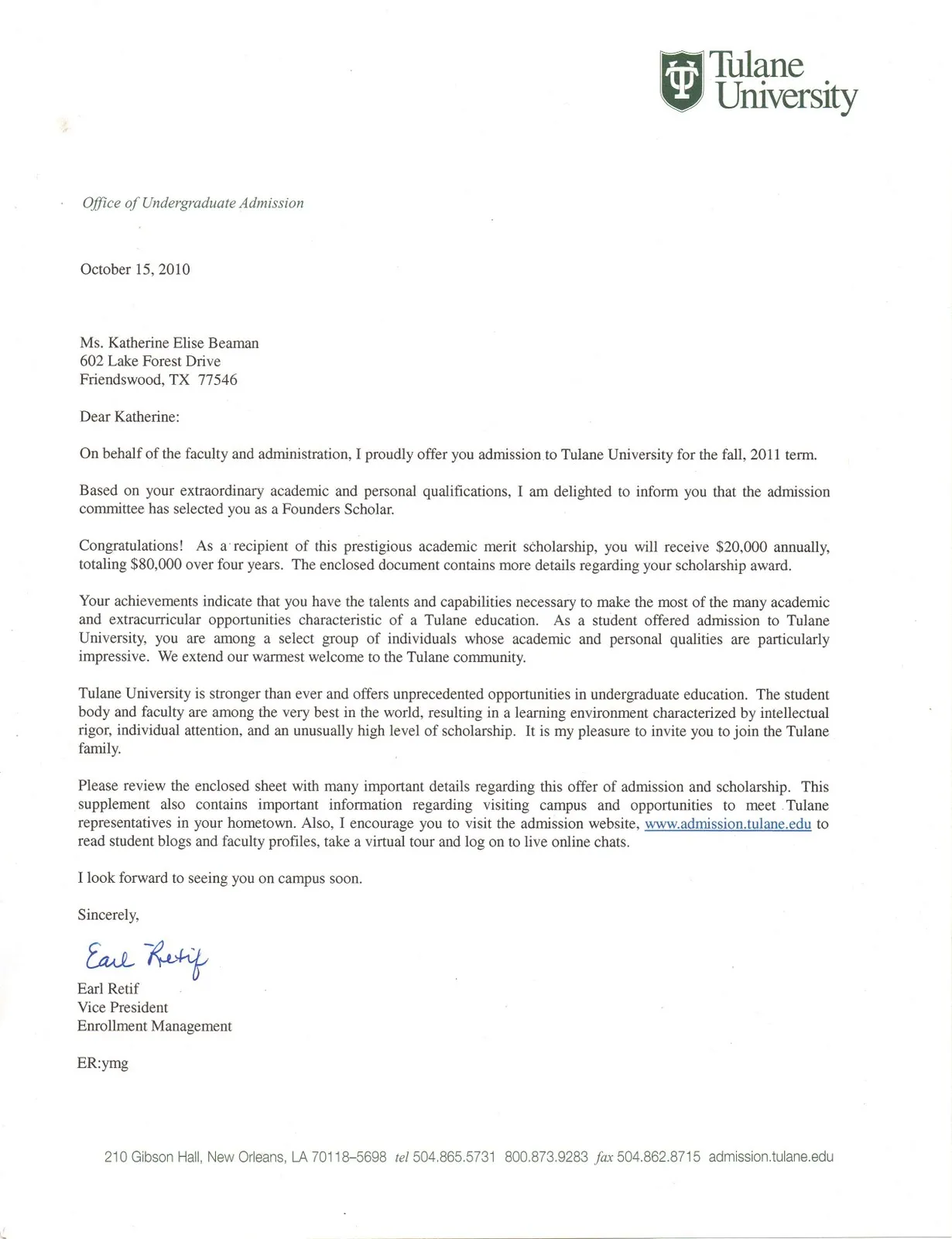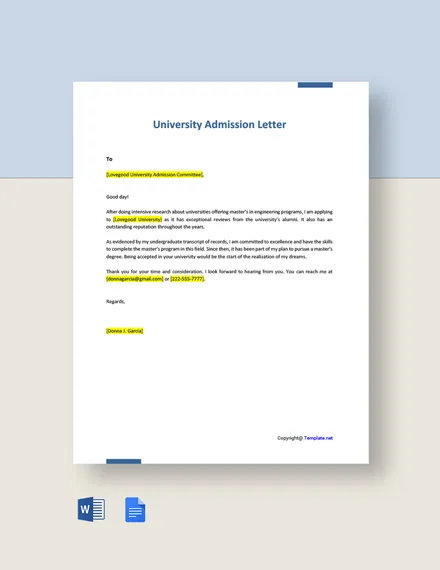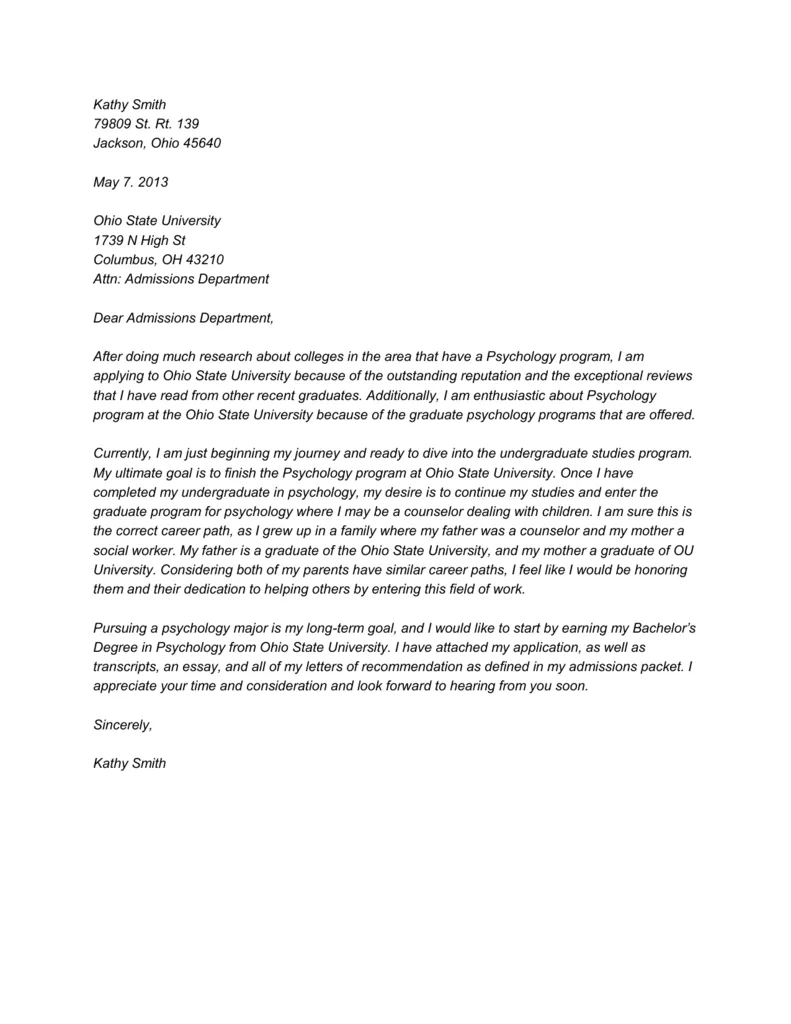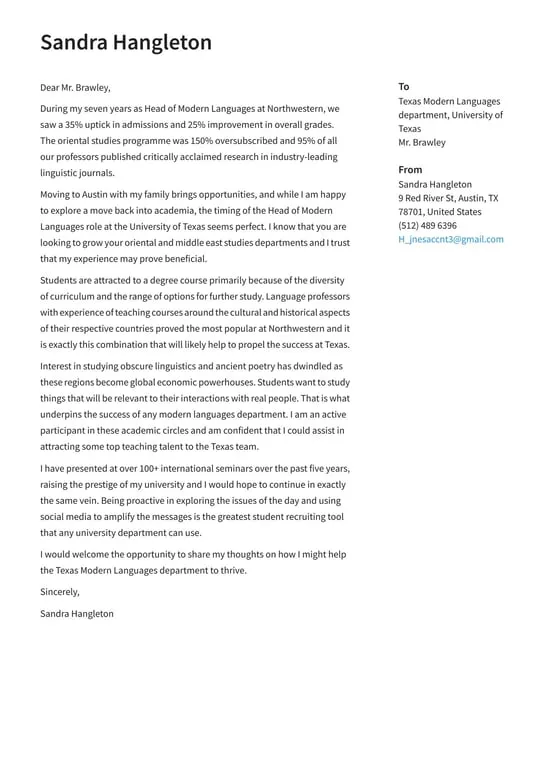Top 5 Cover Letter Tips for University Admission
A cover letter for university admission is more than just a formality; it’s your first chance to make a strong impression on the admissions committee. It provides a platform to showcase your personality, highlight your achievements, and demonstrate why you’re a perfect fit for their institution. A well-crafted cover letter can significantly boost your application, setting you apart from other candidates and increasing your chances of acceptance. This guide offers five essential tips to help you create a compelling cover letter that captures the attention of admissions officers and helps you achieve your educational goals. It is designed to provide you with the tools and insights necessary to write a cover letter that not only meets the requirements but also effectively communicates your unique qualities and aspirations. Mastering these tips can be the difference between acceptance and rejection.
Highlighting Your Achievements
One of the most crucial aspects of your cover letter is highlighting your achievements. Don’t simply list them; provide context and explain their significance. Showcase your academic accomplishments, such as high grades, awards, or scholarships. Furthermore, include extracurricular activities, leadership roles, and any special projects you’ve been involved in. When writing about each achievement, be sure to explain what you learned, the skills you developed, and the impact you made. Did you lead a team to victory in a competition? Did you volunteer significant hours to a cause you care about? These are the kinds of details that make your application stand out and show your proactive nature. Quantifiable results are also very valuable. Instead of saying you improved something, state by how much to provide concrete proof.
Quantifying Your Accomplishments

Quantifying your accomplishments takes your cover letter to the next level. Instead of simply stating you were a member of the debate team, mention the number of debates you won or the awards your team received. If you volunteered at a local shelter, specify how many hours you contributed or the number of people you assisted. Providing specific numbers gives the admissions committee a clear understanding of your achievements and the impact you have made. It transforms vague statements into compelling evidence of your abilities and dedication. For example, rather than saying you improved sales, state that you increased sales by 15% within six months. This level of detail adds credibility to your claims and makes your cover letter more persuasive. When possible, back up your achievements with data and metrics. These details highlight the concrete impact you’ve made and demonstrate your ability to achieve tangible results.
Showcasing Your Personality
While academics and achievements are important, your cover letter is also an opportunity to showcase your personality. Universities want to see who you are beyond your grades and test scores. Share your passions, interests, and what motivates you. Write in a tone that reflects your character; if you’re enthusiastic and driven, let that shine through. If you have a unique hobby, skill, or perspective, mention it. This helps the admissions committee see you as an individual, not just a number. Show your enthusiasm for the field of study you are applying for, or for the university. Share stories, anecdotes, or personal experiences that reveal your character. This makes your cover letter more memorable and helps the admissions committee connect with you on a personal level. Keep your tone professional and appropriate, but don’t be afraid to let your genuine self shine through. This authenticity makes your letter more engaging and helps to solidify your identity.
Addressing Specific University Requirements
Customization is a critical element. Every university has its own unique culture, values, and requirements. Research the specific university you are applying to and tailor your cover letter accordingly. Address specific programs, faculty, or research opportunities that interest you. Demonstrate that you understand what the university is looking for in its students. Read through the university’s mission statement, website, and any additional information they provide to get a clear understanding of their values. If the university emphasizes community involvement, highlight your volunteer experiences and discuss how you plan to contribute to the university community. This personalized approach shows that you have put in the effort to learn about the institution and are genuinely interested in attending. This level of personalization will significantly improve your chances of getting the attention of the admissions committee.
Demonstrating Your Passion

Passion is contagious, and your cover letter is the ideal place to display it. Articulate why you are passionate about your chosen field of study and why you’re eager to pursue it at this particular university. Share what excites you about the subject, any related experiences you have, and any relevant goals. Did a specific experience spark your interest? Discuss it. What are your long-term ambitions? Mention them. Your passion will not only make your letter more interesting to read, but it will also showcase your commitment and potential for success. This helps the admissions committee understand your motivations and vision for the future. If your passion is genuine, it will show through in your writing, making your letter more compelling and memorable. This will reflect your dedication to your chosen course and demonstrates the value you would bring to the university community.
Crafting a Strong Opening
The opening of your cover letter is your first, and possibly only, opportunity to grab the reader’s attention. Start with a captivating statement that immediately highlights your interest in the university or the specific program you are applying for. Avoid generic introductions. Instead, start with a brief anecdote, a striking achievement, or a powerful statement that reveals your personality and passion. A strong opening sets the tone for the rest of your letter. Clearly state your purpose, which is to apply for admission, and include the program or department you are interested in. Your introduction should be clear, concise, and compelling. This will show the admissions committee that you understand the importance of making a good first impression, which shows your professionalism and attention to detail. Remember that the goal is to grab their attention and encourage them to keep reading.
Creating a Compelling Body
The body of your cover letter is where you expand on the key points and showcase your qualifications. Structure your body paragraphs logically, using clear headings and transitions to guide the reader through your story. Provide specific examples to support your claims, such as projects, awards, and experiences. Avoid vague statements. Instead, focus on showcasing your achievements, skills, and experiences in a detailed, yet concise manner. Your body paragraphs should connect your skills and accomplishments to the program requirements and the university’s values. This clearly demonstrates how your education and past experiences align with the university’s values. Use a conversational tone to connect with the reader, but maintain a professional style. Ensure each paragraph has a clear point, and support your claims with evidence. By following this method, you will build a well-structured and engaging cover letter.
Writing a Powerful Conclusion

Your conclusion should summarize your key qualifications and reiterate your enthusiasm for attending the university. Express your gratitude to the admissions committee for their time and consideration. Make it clear why you believe you are a strong fit for the program and the university as a whole. Restate your interest and passion in a way that leaves a lasting impression. Invite the reader to contact you if they have any questions. Avoid cliché phrases and focus on leaving a memorable impression. A strong conclusion reinforces your key points and provides a confident and positive final impression. Make sure your conclusion reiterates your enthusiasm for the university and expresses your gratitude for their time and consideration. A well-crafted conclusion is essential to a cover letter as it is your final chance to convince the admissions committee that you are the right choice.
Proofreading and Editing Your Cover Letter
Before you submit your cover letter, proofread it meticulously. Errors in grammar, spelling, and punctuation can damage your credibility and detract from your application. Read your letter several times, and ask a friend, family member, or career counselor to review it. Make sure you have included every detail requested in the university’s application guidelines. Consider running your document through a grammar and spell-checking tool, but don’t rely on it entirely. Double-check the university’s name, the program name, and the names of the people you are addressing in the letter. Pay close attention to formatting, ensuring that your cover letter is easy to read and professional in appearance. Proofreading is an essential step, because errors can undermine all of your hard work. Therefore, make sure to thoroughly review and edit your cover letter to make a favorable impression.
